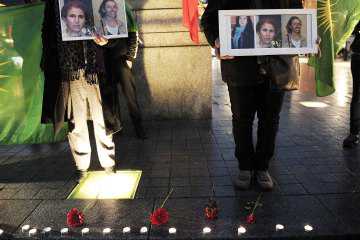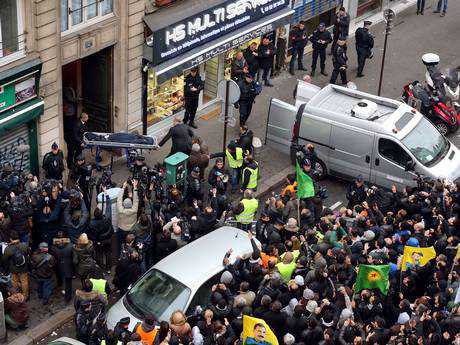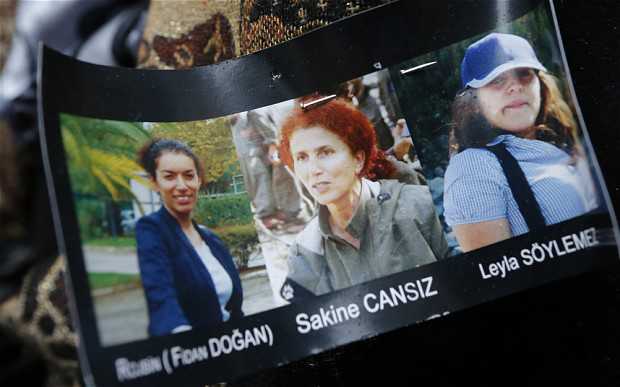What about Turkey? How the country is fairing with fighting neighbors, failed EU negotiations and the Black Sea.
Catherine Stupp | The Christian Science Monitor | Jan 07, 2013
Its protracted bid to join the European Union remains stalled and its “zero problems” policy in the Middle East is cracking over support for Syria’s opposition. But one foreign policy front retains promise for Turkey: the Black Sea.
Nowhere is it more evident than the busy industrial city of Trabzon in northeastern Turkey, a regional trade hub because of its location on roads that connect it to both Istanbul and other cities to the east. The cobblestone streets of the city center are bustling with buses and private cars carrying passengers to Georgia, only 125 miles to the northeast, as well as trucks shipping goods across the region via the highway that cuts through the city.
If plans for a highway connecting the 12 countries bordering the Black Sea go forward, Trabzon’s growth – and Turkey’s growing stance as a regional leader – is poised to surge.
Turkey’s Black Sea coast, far from its tumultuous southern border, offers a promising contrast its more troubled efforts to join the EU and to expand networks in the Middle East. Ankara has emerged as the dominant initiator of regional cooperation, institutionalized by the Black Sea Economic Cooperation (BSEC), which was founded on the heels of the collapse of the Soviet Union.
Filling the Soviet vacuum
Although Turkey was one of 10 founding members, it played a leading role in BSEC’s establishment, and the organization’s permanent headquarters is still located in Istanbul.
BSEC’s early years were dominated by “Turkey’s initiative to offer these countries an alternative” to their socialist economic systems, says Traian Chebeleu, a former Romanian ambassador and current deputy secretary of BSEC’s transportation activities. In 1992, the same year BSEC was founded, Turkey launched its foreign aid program for developing countries, the Turkish International Cooperation and Development Agency (TIKA), which, in its early phases, focused on assisting the newly independent Central Asian and Caucasus states.
Today, the Black Sea states are hoping that projects like the Black Sea Ring Highway will further stimulate trade and economic cooperation. Trade within the region rebounded rapidly from a decline in 2009, while trade with the EU recovered at a slower rate. Countries here may be beginning to see interregional outreach as more beneficial than looking outward to their less stable neighbors. While road travel between BSEC states grew at a rate of 40.8 percent between 2007 and 2011, travel between BSEC states and the EU lagged behind somewhat, growing 36.3 percent.
The highway project is still in development stages, but four lanes of traffic wrapping through 12 countries would be a boon for trade and tourism — or at least that’s what BSEC, the initiator of the project, hopes. The partnership holds both the promise of bolstering existing alliances and testing lingering tensions.
Trade already booming
Although BSEC attempts to harmonize trade regulations of its different member states, it’s difficult to measure what direct effects the organization has had on trade within the region.
For Turkey, the construction project could be the first step in a realignment of its foreign policy. Its northern border along the Black Sea coast is vast, and recent efforts to repair strains between Turkey and Russia suggest that this region is becoming increasingly important for Turkey.
After Russia, Turkey is the region’s biggest exporter. While Russia and some other BSEC members like Azerbaijan and Ukraine primarily export oil, Turkey’s main exports are textiles and machinery, says Ussal Şahbaz, an economist at The Economic Policy Research Foundation (TEPAV) in Ankara.
According to Mr. Şahbaz, the ring highway would make transport of goods faster and more efficient. “Over the years maritime transport has declined in relative terms, and railway and highway transport have regained importance. If you ship from China to Europe, it takes 1-1/2 months, whereas if you use highways or railways, it takes 10 days or so.”
Although BSEC organized the Black Sea Ring Highway Caravan in 2007, a kind of “test run” in which industrial-sized trucks traveled more than 4,660 miles through most member states, not all routes of the ring highway have been built, nor have they been agreed upon.
The construction of roads is already complete in Turkey and Greece, but the other 10 member states have yet to build their parts of the highway. At the moment, road transport between the Black Sea states is hampered by long waits at border crossings and high fees or other bureaucratic hurdles for truck drivers applying for visas.
Mr. Chebeleu, the deputy secretary, says that the organization hopes to agree on a time frame for construction by 2014. In his office in the seaside villa that houses the BSEC secretariat, tucked away in the affluent Istanbul neighborhood of Emirgan, Chebeleu talks about the challenge such conflicts pose to their work.
Regional rivalries
Russia and Georgia pose the biggest challenge, although the 2008 war between the two has been far from the only hindrance. The war, Chebeleu says, only “added to the problems.”
Determining a route that can connect the two countries is complicated by territorial disputes. Russia has proposed that the highway pass through Abkhazia, which Russia recognizes as an independent state, but Georgia and the international community consider it Georgian territory. Moldova and Ukraine have had similarly fraught disputes over whether the highway should cut through the disputed area of Transnistria.
But Chebeleu insists that there is a willingness to find solutions, not only because of the potential economic benefits of BSEC’s projects, but because of the political benefits of economic cooperation for a region dealing with a number of internal conflicts. “Of course it depends on what the member states want, and that nobody interferes in their decisions, but we all want to accept whatever decision they find appropriate for themselves.”
As a major trade partner for many Black Sea states with comparably smaller economies, Turkey’s participation is critical. The transport route can only directly connect the Caucasus states to the EU and Balkan countries if it runs along Turkey’s northern coast. With the promise a new transportation network along the Black Sea holds for Turkey, its role would seem almost assured, but it is pursuing other avenues for bolstering its regional economic influence as well.
“While promoting the Black Sea Ring Highway on the one hand, Turkey also endeavors to establish its own transportation network consisting of bilateral units,” extending its regional flight networks and increasing its oversight of marine transportation in the Black Sea, says Selcuk Colakoglu, adviser to the Turkish Ministry of Foreign Affairs’ Center for Strategic Research.
If ongoing disputes among BSEC members can be quelled and construction of the highway goes forward, Turkey could be well-positioned as the geographic and economic backbone of a lucrative new trade network.





